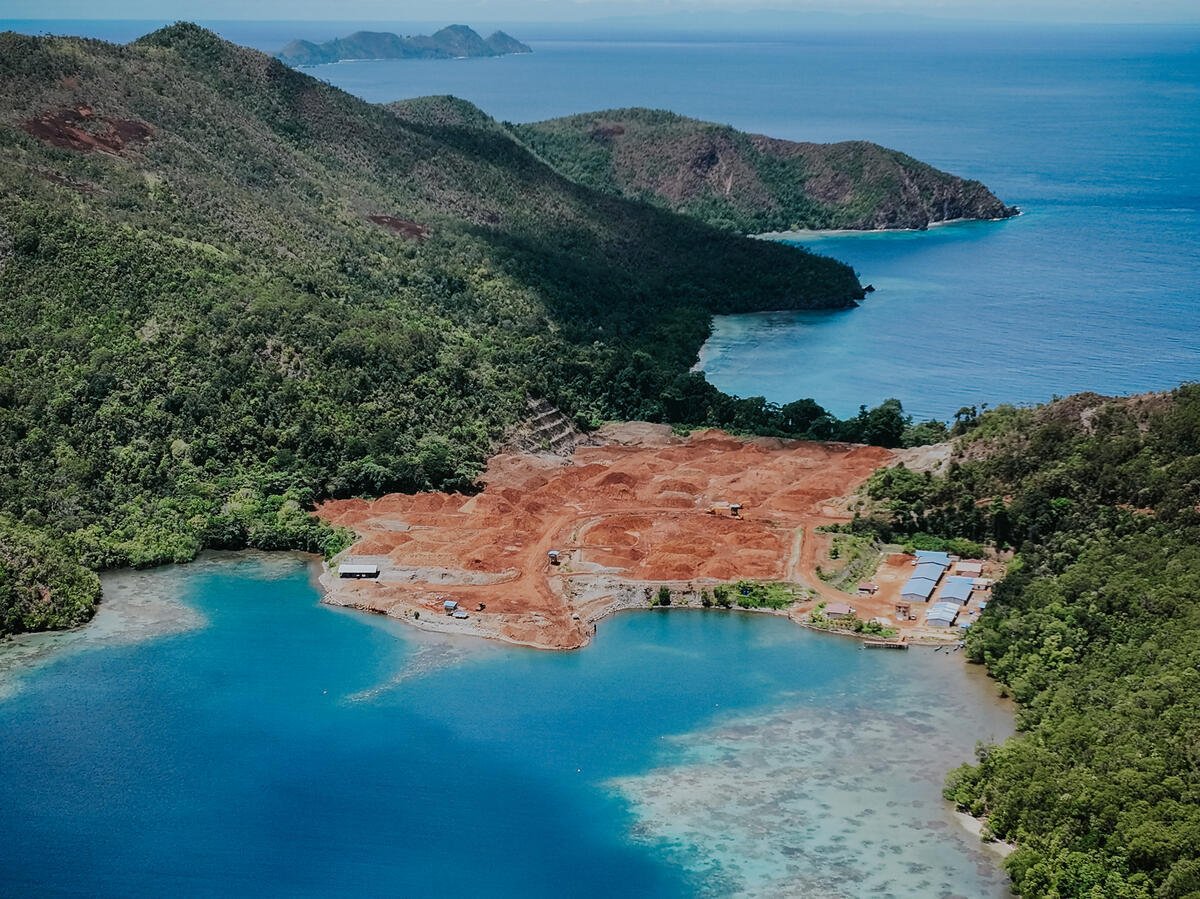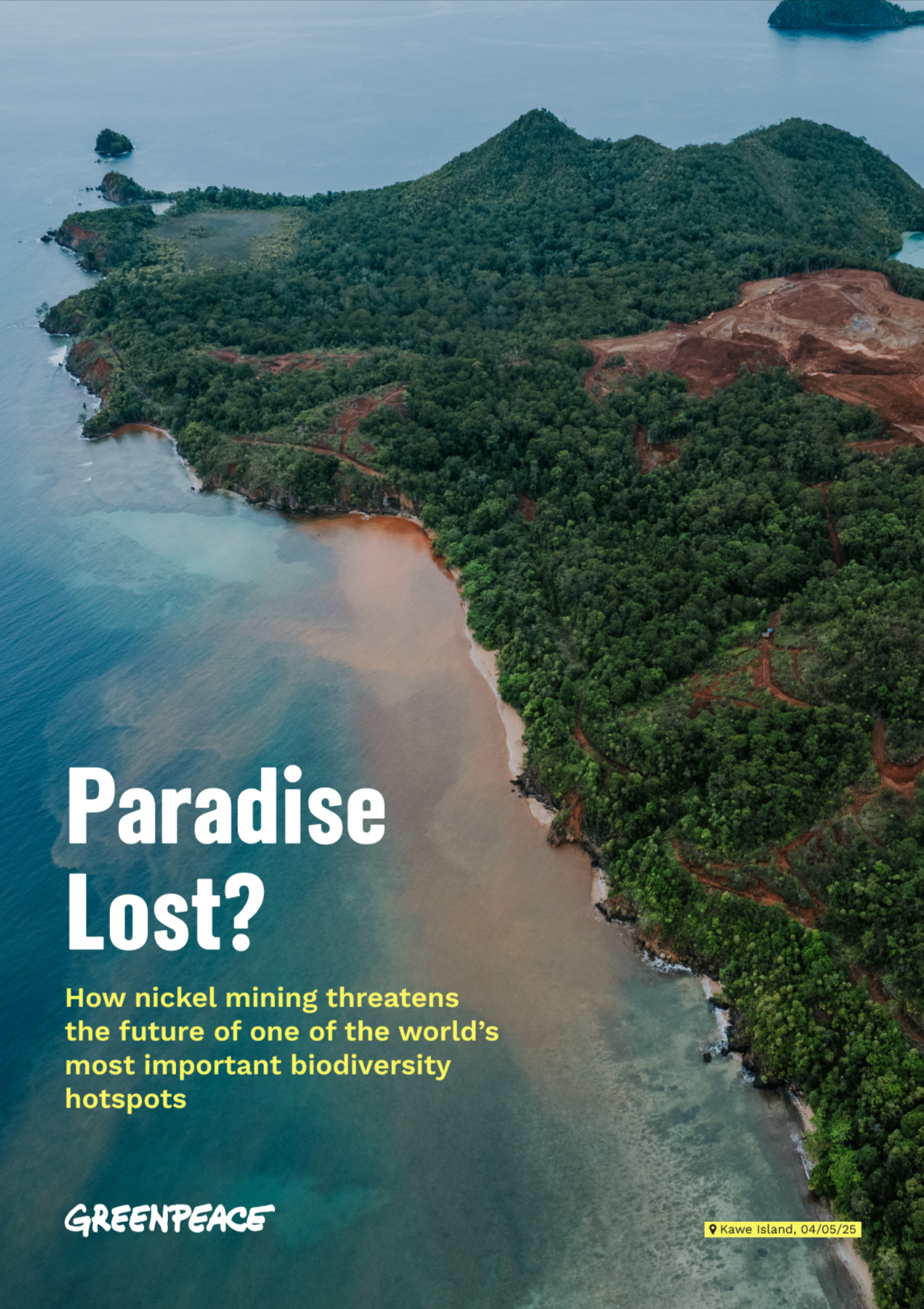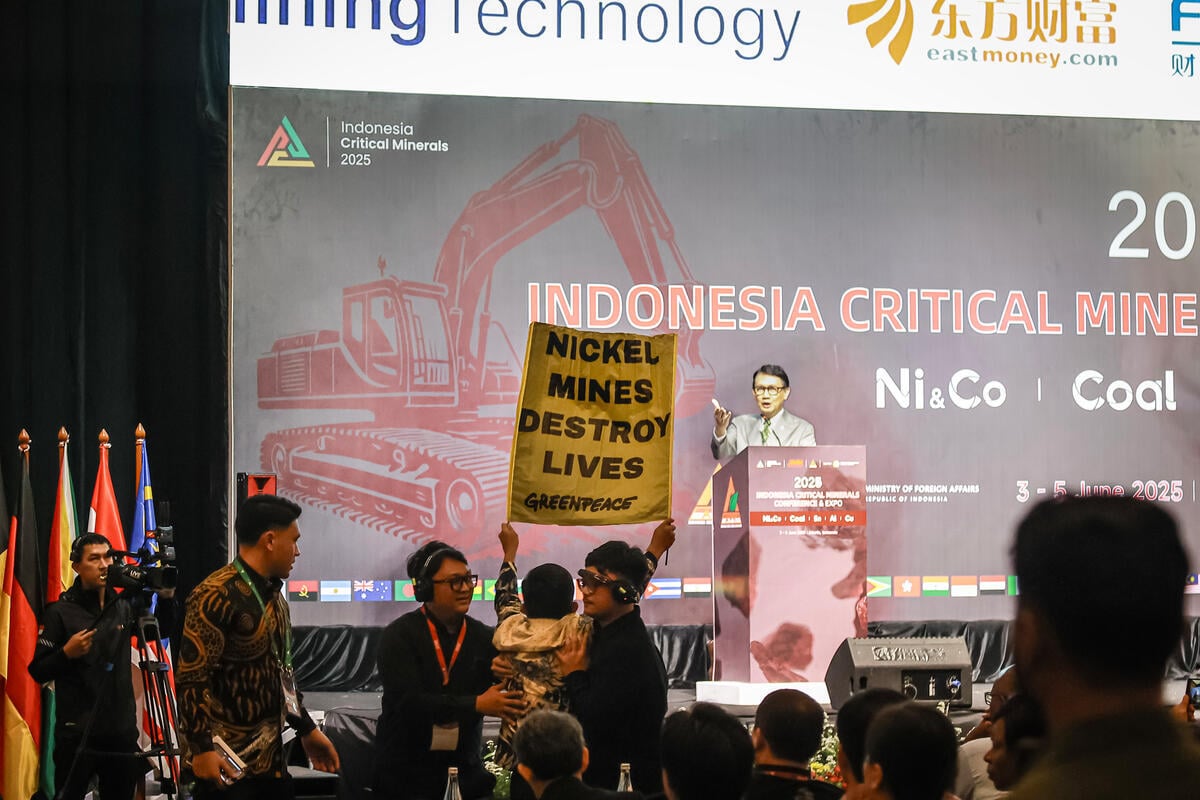“Greenpeace is awarding APP a Golden Chainsaw for being one of the worst forest destroyers in Indonesia. We are calling on the company to clean up its act by halting rainforest destruction, which drives climate change and pushes endangered species towards extinction,” said Corinna Hölzel, forest campaigner, Greenpeace Germany. “Several companies like Metro and Adidas have already broken ties with APP due to its bad practices – we advise others to protect their brands and follow their lead.” (2)
Greenpeace investigations into deforestation in Indonesia (3) exposed that APP, Sinar Mas’ pulp and paper division, is converting huge areas of forest and carbon-rich peatlands into acacia and eucalyptus plantations in order to produce packaging as well as printing, photocopy and tissue paper in Indonesia and China, which it sells worldwide. This deforestation destroys the natural habitat of endangered species like the orang-utan and releases enormous quantities of CO2, making Indonesia the third largest greenhouse gas emitter in the world. (4)
The Greenpeace investigation also discovered that APP plans to expand its operations into one of the last refuges for the critically endangered Sumatran tiger. (5)
Greenpeace is calling for an immediate end to the destruction of all Indonesia’s natural forest and peatlands, the world’s most critical carbon stores, through a moratorium on the destruction of forests in both new and existing concessions.
“Life on Earth needs healthy rainforests to survive and yet, globally, an area of forest the size of 35 football pitches is destroyed every minute. (6) It is vital that companies like APP put down their chainsaws and instead increase their productivity areas that have already been destroyed,” said Hölzel.
Notes to editors:
(1) http://www.un.org/en/events/iyof2011/
(2) Adidas, Kraft, Nestlé, Unilever, McDonald’s and Mars, as well as retailers such as Carrefour, Auchan, Leclerc, Sainsbury, Marks & Spencer, Tesco and Metro have all said they will cut ties with APP if it does not fundamentally change its approach to sustainability. Given the recent announcement by the Consumer Goods Forum on action against deforestation, it is likely that other companies will cut ties with APP in the near future. See: https://www.greenpeace.org/static/planet4-southeastasia-stateless/2019/04/5b629767-5b629767-2010-11-28_tcgf_final_press_release.pdf
(3) For details on APP’s environmental impact, see ‘How Sinar Mas is Pulping the Planet’, Greenpeace International, July 2010. http://www.greenpeace.org/international/en/publications/reports/SinarMas-APP/
(4) Based on comparison of DNPI data (published 2009 and source for their 2010 report) with data from other top emitting countries (China, USA, Brazil, India, Russia) positions Indonesia is the world’s third largest greenhouse gas polluter in 2005, the base line year from which the Indonesian Government has based its abatement plans.
(5) APP plans to increase the overall capacity of its two pulp mills in Sumatra from 2.6 million tonnes per year (as of 2006) to 17.5 million tonnes per year in coming years. See ‘How Sinar Mas is Pulping the Planet’ (page 12) for further details.
(6) Based on latest assessments by the FAO.
Media Contacts:
Corinna Hölzel, forest campaigner Greenpeace Germany: +49-171-8787833
Photos – John Novis, Greenpeace International +31 (0) 629 00 115



